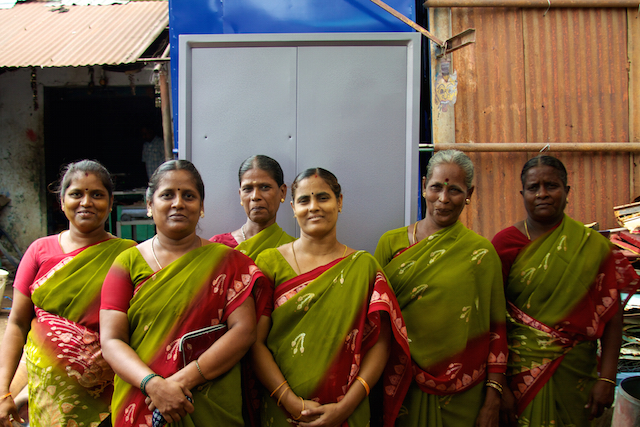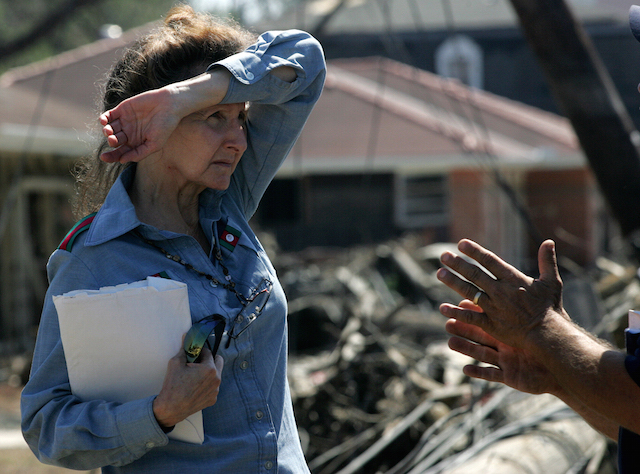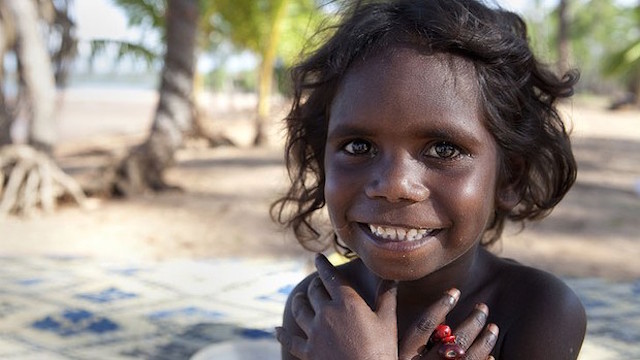We are all affected by climate change.
Each and every one of us. There's no rock to hide under, or cave to crawl into. The planet is cooking, and we're spinning on the microwave hotplate.
If it gets any warmer in here – we're talking more than two degrees - in the next one hundred years our quality of life on Earth will be dramatically compromised.
Sound grim? It is.
And that's not the worst bit. Recent studies have shown that climate change will affect women more severely than men (as if we didn't have enough to deal with!) and us ladies in developed world countries are no exception.

So how are women more affected by climate change?
In the developing world, women have a lot of responsibility. A lot. They're the ones who cook and clean but they also have to forage. They bear the children, and they also bear the brunt of familial duty. They run the household completely and are largely responsible for the happiness and survival of their families.
In most developing countries, women do okay when it comes to providing because over their lives they have learnt how to best utilise the land's resources. However, the natural resources of the world are the only resources available to women who live in remote villages and when they grow scarce, situations become sticky.
Climate change damages the land, which has meant fewer viable resources for women to work with. Women, who collect the necessary water, fuel and fodder to maintain survival, are forced to work harder and often need their children to help. Mothers take their daughters out of school to assist with housework or cooking. As a result, young girls grow up uneducated, with few prospects of securing a job. They become stuck in a traditional way of life – a way of life that is becoming more and more difficult to sustain because of global warming.
When women can't provide for their families, their husbands begin to resent them. This can often lead to domestic violence. Because women have been socially constructed as 'providers,' they are blamed when they cannot provide, regardless if it is their fault or not. A lack of knowledge on climate change perpetuates this sense of placing blame, and further increases hostility between spouses, with an added pressure on the woman to maintain emotional balance for the family when there's no food on the table.
Women are also at the mercy of climate change when a natural disaster strikes. Natural disasters are a by-product of climate change, becoming more and more frequent as the planets cooks. In events of typhoons floods or fires, women are more likely to stay at home to protect the house and children, bound by a sense of duty. In some villages, women physically cannot leave their homes without the accompaniment of a male, which often means they perish. And that's just during natural disasters. In the aftermath of natural disasters, domestic and sexual violence against women increases as a result of displacement. We've seen this type of thing in the developed world, too.
In developed countries (including America, Australia and Europe) women are often neglected in the aftermath of a disaster. In 2005, Hurricane Katrina destroyed the American city of New Orleans. (There is much dispute about whether Katrina was climate related though the increase of warming in the American South leads many scientists to believe that it's linked). After Katrina, there was not only looting in the city but gender based violence. Like in developing countries this violence also came as a result of displacement. Women had to live in shelters while their homes were rebuilt, and this left them vulnerable. According to the Institute for Women's Policy Research, the rate of gender-based violence in Mississippi rose 14% in the year following Hurricane Katrina and only declined once living conditions started to get back to normal.
In Australia
The roles of Australian women are also affected by Climate change. In rural areas of Australia, drought causes massive problems for farmers and their families. There is an increased pressure on women to provide support for the family, not only practically but also emotionally.
In rural Australia, there are limited outreach services for women to engage in action on climate change, and this, like in the developing world, perpetuates the problem. If women living in rural Australia can't access community solutions to climate change, they can become easily stuck in a rut, stressed out and feel emotionally defeated.
But your voice can help.
Not all is lost. There's a lot to be said for the power of one, and every woman on the planet has it in her hands to prevent climate change - That's a fact. We know this from looking at the ways women have shown their strength and resilience in the developing world's climate battle. Women have demonstrated not just physical power, but strong intellectual ability in creating solutions for climate-related problems.
In Tanzania, women in the community are responsible for collecting firewood for cooking as well as using in the household. Because climate change has affected the quality of soil conditions, the trees have not taken to growing as well as they previously have. To combat this problem, the women developed a tree planting initiative, as well as switching to fuel-efficient stoves to reduce the need for firewood, and save resources.
A similar beacon of girl-power beams at us from Central Mexico. A group of women pooled together their knowledge of weeds to inform local farmers to plant weeds that grow in dry conditions and weeds that should be replaced. The result was greater efficiency in farming, and a newfound respect for the women's ideas.
Girl Power
So how can we, as women with access to greater resources and knowledge, help in saving the world from climate change? In addition to making small lifestyle changes to reduce your carbon footprint (you can sign up for the carbon challenge here), educating other women on climate change is a great way to start. This can be as simple as striking up a conversation with a girlfriend or encouraging them to read climate-related news. Or, you can think bigger. If you find yourself in a developing country any time soon (on a holiday or otherwise), why not volunteer at a local girls school or shelter and inform students of how climate change impacts out planet, and the huge number of changes that they themselves can make to reduce their carbon footprint.
Pushing for female leaders is another way you can help fight climate change.
Did you know that in 2013, Australian women only held 15.7% of boardroom positions in Australian companies and only five women were CEO's? (Armstrong).
Women are also underrepresented in politics, comprising less than one third of Parliamentarians in Australia. Many of the Politicians in Parliament don't (and won't) take climate change seriously unless there is a large enough group of people present who will speak up about it. To encourage this kind of political shift, you can write to your local community leader informing them of your views and make sure you vote for leaders who care about climate change.
It's a sad irony that in many ways women, with their strength and love, are the people who hold the world together yet they are also the people most neglected in climate crisis.
Climate change is devastating. It's long, it's hard, it's arduous. It's a pain in the butt, a constant headache. But as women, we can make it go away. We just need to support and empower one another to make sustainable lifestyle choices.
Climate change is a fight – but it's our fight - and we'll win.
READ THIS NEXT: [Interview] A day in the life of 'The Veg Coach' Ellen Jaffe



